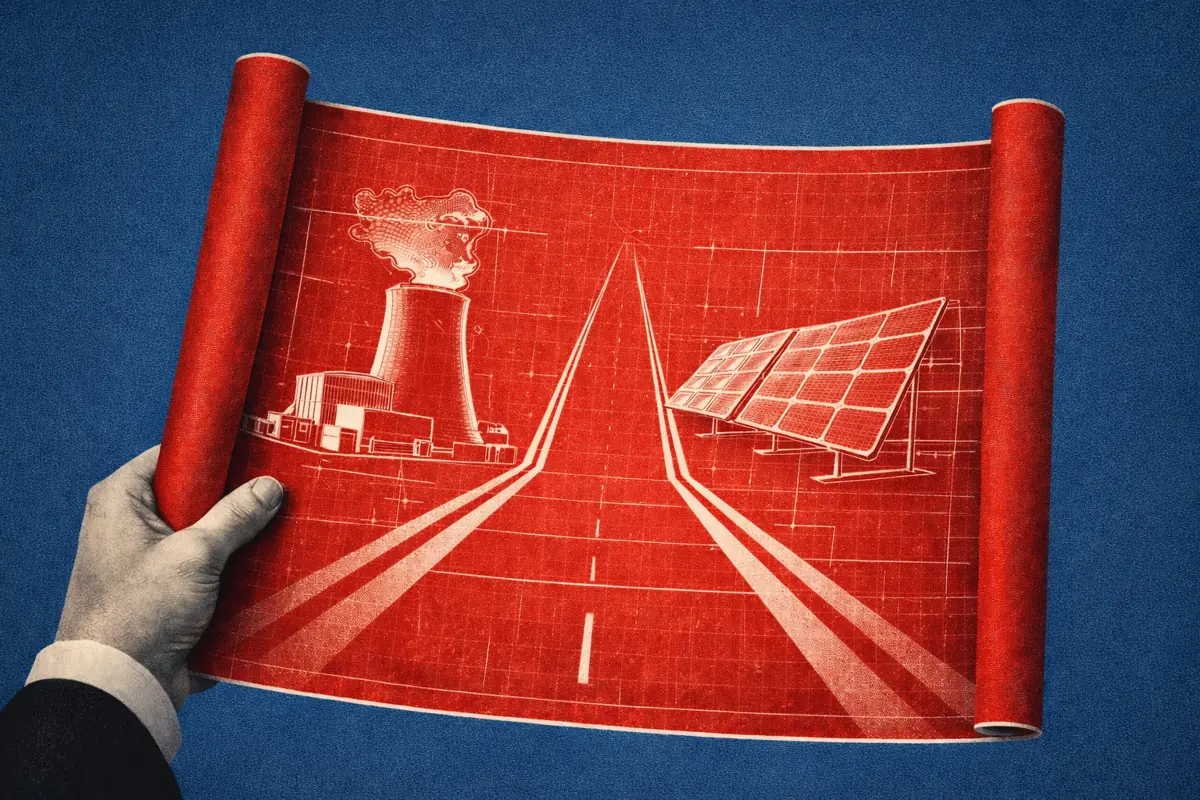Battery skip rates: what is the impact on carbon emissions?
The open balancing platform launched on 12th December. It’s hoped that this will improve skip rates for battery energy storage. This is important not just for improving battery revenues but also for reducing carbon emissions. Batteries have contributed to reducing carbon emissions in Great Britain, primarily through providing frequency response.
Skipping battery energy storage increased CO2 emissions by 50,000 tonnes in 2023
Actions in the Balancing Mechanism take two forms: Offers, to turn up generation, and Bids, to turn generation down. Skipping batteries in favor of turning up other technologies through offers has increased emissions by 71,000 tonnes of CO2 in 2023. By contrast, skipping in favor of turning down other technologies has reduced emissions by 21,000 tonnes of CO2 this year.

This has resulted in a net increase of 50,000 tonnes of CO2 in 2023. This is responsible for a 0.2% rise in power sector emissions for the year and is equivalent to the annual emissions of 31,000 cars on the road. This number has been growing as skipped volume increases. If skip rates don’t improve, this figure could reach 69,000 tonnes of CO2 in 2024 - or higher.

The main contributor to increased emissions from skipped Offers is fossil-fuel-burning plants, mostly CCGTs, gas peakers, and coal. The impact of skipping in favor of these technologies has grown over 2023 - from 900 tonnes of CO2 in January to 5,100 in November.
Pumped storage started the year as the primary contributor to carbon emissions. This is because it has been the technology skipped in favor of the most and has a less efficient charge/discharge cycle than batteries. However, the impact on emissions from this is less than that of other technologies.

Turning down fossil fuel plants via bids reduces emissions, as they burn less carbon. So, skipping batteries for these generators directly reduces emissions. However, skipping batteries to turn down wind does increase emissions - by 18,000 tonnes of CO2 in 2023. Instead, batteries could import energy from clean wind and export it to the grid later.
Calculation methodology
Calculating the carbon cost (or, equally, the monetary cost) of battery energy storage skips is complex. The total volume of skipped battery actions can be calculated, but this doesn’t represent what batteries could deliver.
As energy-limited assets, most of which are only one or two hours in duration, it cannot be assumed that skipped battery volume could immediately replace higher cost actions in total. Additionally, most systems are cycling limited, usually up to two or three a day.
The total volume of skipped battery actions has been increasing over 2023
While skip rates for battery energy storage have reduced slightly over 2023, the total volume of skipped battery capacity has increased significantly. This follows the steady installation of new battery capacity over this time frame - over 1.4 GW from the end of 2022. More and more of this new capacity is now entering the Balancing Mechanism.
Because of the energy and cycling limits of batteries, we sum this volume by asset by day, capped at one cycle. Through this method, the amount of skipped battery volume that is actually deliverable has increased from 37 GWh in January to over 100 GWh in November.

Pumped storage makes up the majority of energy volume that batteries are skipped in favor of. A total of 205 GWh of Offers and 61 GWh of Bids for pumped storage came at a more expensive cost than the available battery capacity.
This accounts for 36% of our skipped, deliverable battery volume. CCGTs are the next highest, accounting for 24% of skipped battery volume, although more is through Bids. Finally, wind accounts for the most skipped Bid volume, with 117 GWh in 2023.

These actions result in changes to the grid’s carbon emissions
Each of these skipped actions has a different impact on the grid’s carbon emissions. Volume instructed for each causes an increase or decrease in carbon emissions based on that technology’s carbon intensity.

If batteries were to provide some of these actions instead, these direct emissions would not occur. However, if they were to receive these instructions, the energy exported or imported by batteries needs to be balanced out by actions outside the Balancing Mechanism.
Skipped battery Offers result in increases in emissions
Offers require the turning-up of generation. Fuelled technologies, such as CCGTs and coal, produce carbon emissions when this happens, with the amount based on the fuel’s carbon intensity.
Pumped storage accounts for most skipped Offer volume, and these skips do not directly release more carbon. However, pumped storage plants have a lower round-trip efficiency than battery storage, which causes an increase in total carbon emissions when they recover exported energy.

The impact of skipped battery Bids depends on the technology
Bids result in generation turning down. This reduces carbon emissions based on each technology's carbon intensity, offset by the energy that batteries could have exported back to the grid.
Bids for wind (and other renewables) do not result in any direct change in carbon emissions. However, because batteries can export this power back onto the grid, these ultimately come at a carbon cost.

The ESO does not currently have a target to reduce carbon emissions - but this may change
The ESO has two main criteria for managing the grid. Firstly, in ensuring security of supply, and secondly, doing this at the least cost to the consumer. Reducing carbon emissions has not been part of this role - yet. The Energy Bill 2023 has officially legislated for the ESO to transition to the FSO, or Future System Operator, which is expected to happen in 2024.
As part of this transition, the FSO will have a new, additional mandate to reduce the energy sector’s carbon emissions in line with net-zero commitments, while maintaining security of supply and minimizing costs. Ofgem is now consulting on how the FSO will be regulated and measured on performance.
While there is a cost to skipping battery energy storage, this has not yet created the incentives to tackle the problem. The creation of a new mandate to reduce carbon emissions could provide additional pressure to consider the carbon impact of decisions.







